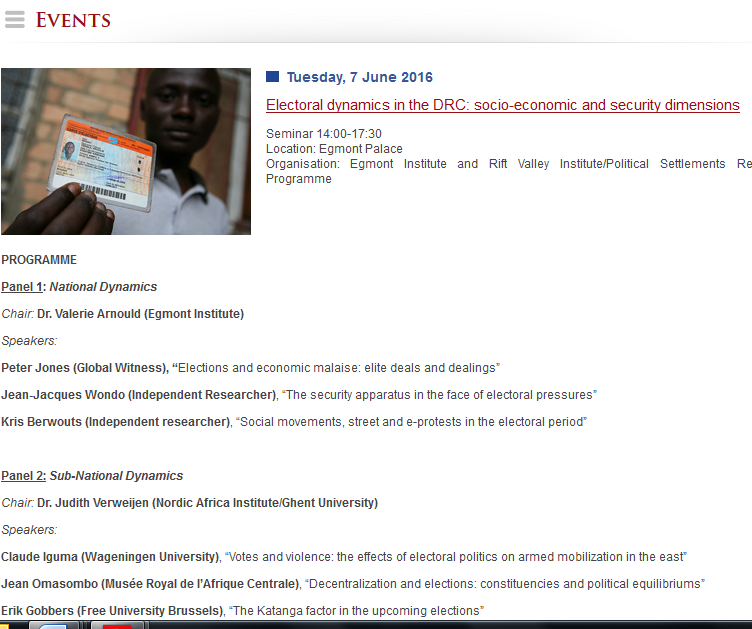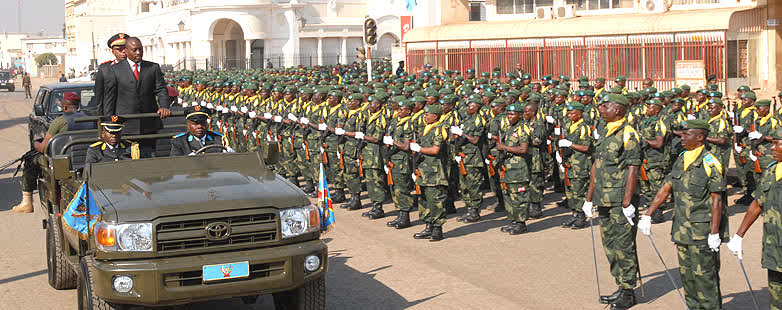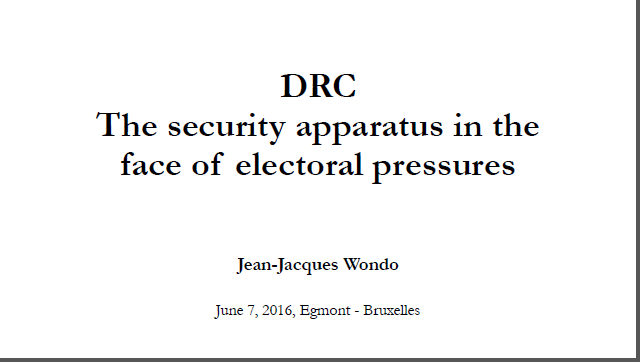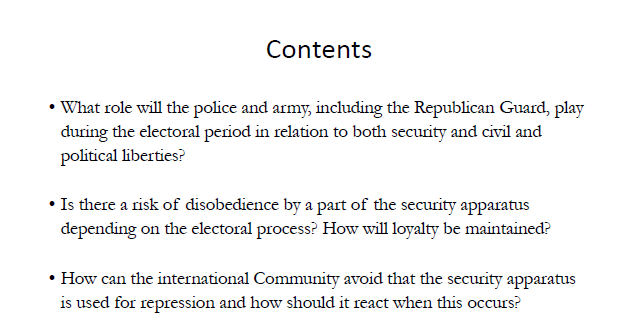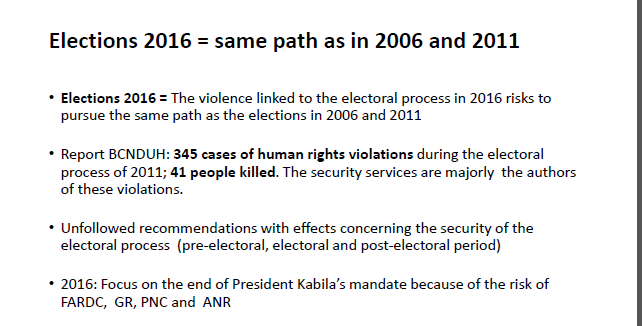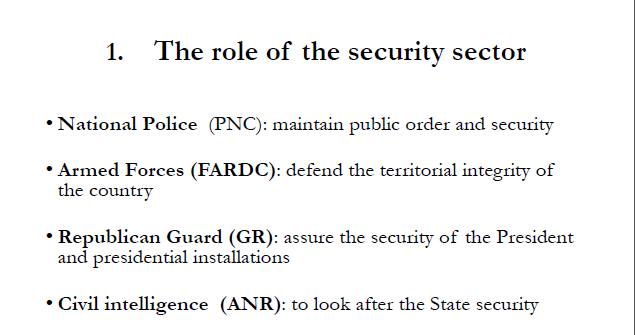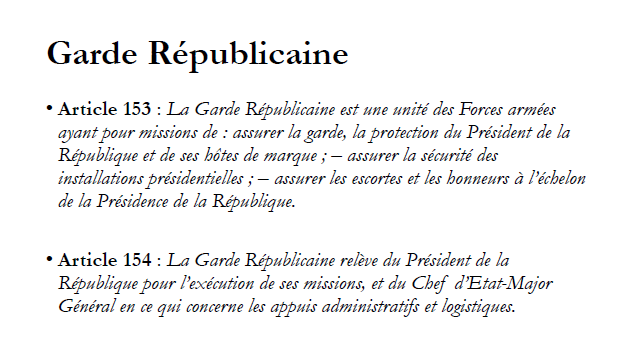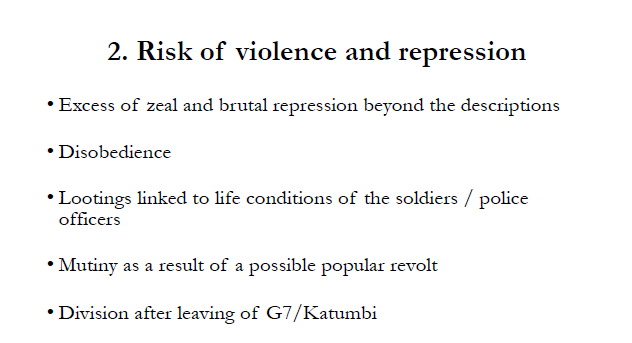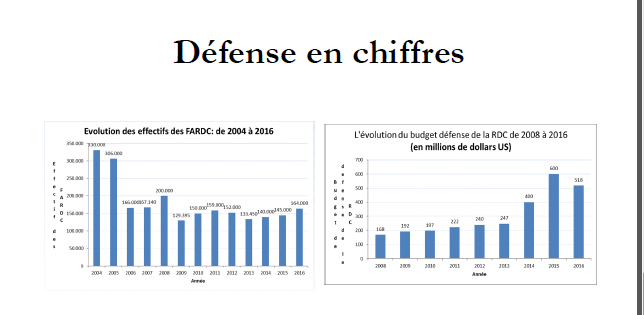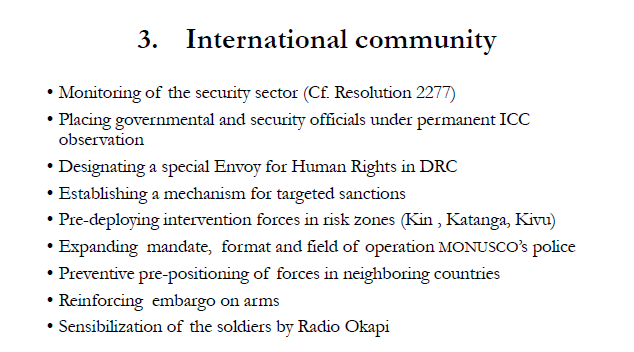The security apparatus in the face of electoral pressures
By Jean-Jacques Wondo Omanyundu
This article is a summary of my presentation at the seminar entitled « Electoral dynamics in the DRC: socio-economic and security dimensions » held June 7, 2016 by Egmont Institute (Royal Institute for International Relations) and Rift Valley Institute.
What role will the police and army, including the Republican Guard, play during the electoral period in relation to both security and civil and political liberties?
Is there a risk of disobedience by a part of the security apparatus depending on the electoral process?
How will loyalty be maintained?
How can the international Community avoid that the security apparatus is used for repression and how should it react when this occurs?
Abstracts
This short presentation will briefly refer to security situations of the 2006 and 2011 elections whose paths could determine the extent of the security situation in the upcoming electoral process.
I will be focusing on the security threats linked with the end of the mandate of President Joseph Kabila. This period is marked with a strong militarization of the Republican guard (Garde Républicaine), its intervention in the operation fields of the police and also by the shrinkage of democratic space. During this same period which started in January 2015, we witness on the one hand a restriction of rights and individual liberty guaranteed by the Congolese Constitution and on the other hand the upsurge of massive violations of human rights.
I shall then prove the fact that there is a double risk of skid of the security services. First of all, the risk of a boundless loyalty that could force the security services to harshly repress the manifestations beyond the legal limits. And secondly, the risk of a munity of the security services against the authority or the occasionally lootings by the army and/or the police as a result of the deterioration of their conditions of life.
Finally, I would like to stress that the international community needs to consolidate the efforts of fragile stabilization obtained on the field by taking some preventive measures by redeploying the forces of the MONUSCO on the fields to keep the population in security, targeted sanctions against the political and security leaders responsible for massive violations of human rights.

